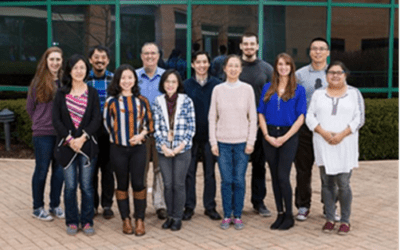amnion foundation seed grant program
Recipients of Primary Cell Access Seed Grants will be eligible to receive primary cells and supporting reagents valued at up to $10,000.00 to support an Investigator’s ongoing efforts toward the development of in vitro models or regenerative medicine products.
ELIGIBILITY & APPLICATION
Selected applicants will have an established, active program of applied research in placental or umbilical cord cell biology within one or more of the following disciplines: toxicology, pathogenesis, pharmacology, developmental biology, or regenerative medicine. Applicants must have a lab in which they conduct mammalian cell culture routinely and an interest in transitioning from non-human or cancer-derived cell lines to primary human cell strains. Applicants must be an employee of a North American registered academic institution or business. Graduate students or postdoctoral trainees may apply in conjunction with the support of their primary mentor.
The application window for the 2025 Seed Grant Program has now closed. Please check back in mid-summer of 2025 for details about the 2026 Application window. If you have questions, please email info@amnionfoundation.org.

PROGRAM DETAILS
The Amnion Foundation is a registered 501(c)3 organization specializing in the repurposing of otherwise discarded birth tissues (placenta and umbilical cord) for the generation of primary human cells to support advancements in regenerative medicine and drug discovery. Available cell types include umbilical vein-derived endothelial cells, placental tissue-derived endothelial cells, cytotrophoblasts, macrophages, classical umbilical cord-derived MSC, and pericyte-like placental stem/stromal cells. Recipients of Primary Cell Access Seed Grants will be eligible to receive primary cells and supporting reagents valued at up to $10,000.00 to support an Investigator's ongoing efforts toward the development of in vitro models or regenerative medicine products. Technical support will also be provided to the recipients for their selected cell type(s). Eligibility: Selected applicants will have an established, active program of applied research in placental or umbilical cord cell biology within one or more of the following disciplines: toxicology, pathogenesis, pharmacology, developmental biology, or regenerative medicine. Applicants must have a lab in which they conduct mammalian cell culture routinely and an interest in transitioning from non-human or cancer-derived cell lines to primary human cell strains. Applicants must be an employee of a North American registered academic institution or business. Graduate students or postdoctoral trainees may apply in conjunction with the support of their primary mentor.
Seed Grant Recipients
2024 Recipient Profiles
Seed Grant 2024 Recipients Meet our 2024 Seed Grant recipients! Each of these leading laboratories will receive no-cost access to the...
2025 Recipient Profiles
Seed Grant 2025 Recipients Meet our 2025 Seed Grant recipients! Each of these leading laboratories will receive no-cost access to the...
2021 Recipient Profiles
Seed Grant 2021 Recipients Meet our 2021 Seed Grant recipients! Each of these leading laboratories will receive no-cost access to the...
IMPACT STATEMENTS
“Drug use and viral infections are threats to the health of pregnant women and their unborn children. Long-term use or abuse of opioids can cause birth abnormalities, psychological disabilities, and neonatal abstinence syndrome, and Zika virus infection has caused fetal malformations, particularly abnormalities in central nervous system development. As a result, the scientific community has turned its attention to the roles of the placental barrier and has explored the development of in vitro placental barrier models recapitulating human placental barrier physiology and pathology. The Seed Grant from Amnion Foundation has enabled us to initiate the development of 3D human vascularized placental barrier models providing patient-derived relevant cellular components: placental microvascular endothelial cells, placental fibroblasts, and trophoblasts. The 3D placental model will allow for the study of multicellular interactions within the dynamic microenvironment during drug treatment and viral infections. Furthermore, the high-throughput platform will provide extensive opportunities to identify better targets and drug compounds, ultimately helping researchers better predict the usefulness of therapies in patients.”
“With relevance to pressing public health issues, toxic metals such as Arsenic and Cadmium ubiquitous in the environment, and threaten the safety and health of vulnerable populations such as pregnancy women and developing children. These toxicants are harmful to many facets of human health, but notably are able to serve as developmental toxicants: during pregnancy they can cross the placenta and influence both the health of mother and the fetus. Toxicant exposure during pregnancy could result in immediate detrimental birth outcomes or later-in-life adverse health outcomes in children. It is of great public health concern that research is conducted in placental cells to further our understanding of the mechanisms of action of these toxicants. The Seed Grant from Amnion Foundation has granted us the opportunity to leverage the use of primary trophoblasts to understand the association between toxic metals exposure and placental proteomic changes. This research approach is aimed at public health improvement and is innovative in the fields of toxicology and maternal and fetal health research.”
INTERESTED IN LEARNING MORE ABOUT THE SEED GRANT PROGRAM?
Email us at info@amnionfoundation.org or use the Get in Touch page with your questions or concerns. We’re looking forward to hearing from you!


